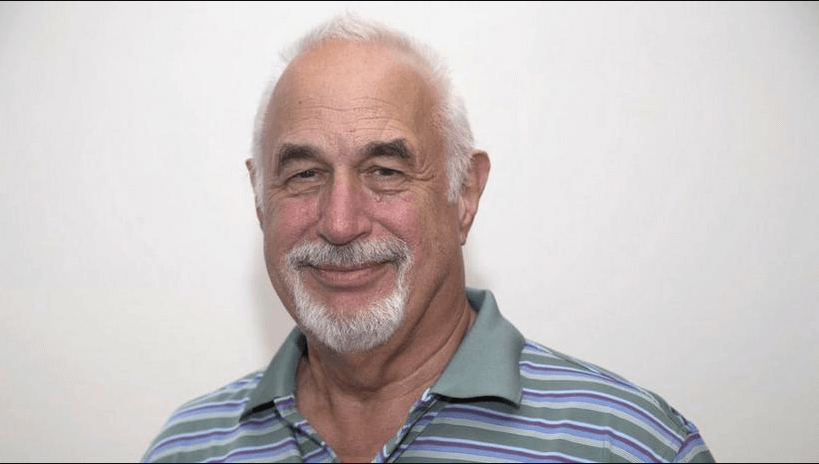Andy Hildebrand: Revolutionizing the Music Industry with Auto-Tune Technology

In the world of music, some individuals have left an indelible mark by introducing groundbreaking innovations that forever change the industry landscape. One such visionary is Hildebrand, a brilliant engineer and inventor who revolutionized music production with the invention of Auto-Tune technology. This article delves into the life and achievements of Andy Hildebrand, exploring his background, the creation of Auto-Tune, its impact on the music industry, and the enduring legacy of this technological marvel.
1. The Early Years of a Visionary
Andy Hildebrand, born in the mid-20th century, showed an early aptitude for both music and science. He developed a passion for playing the piano and exploring musical composition, while his keen interest in mathematics and engineering became evident during his formative years. This unique combination of talents would eventually pave the way for a groundbreaking invention.
2. The Genesis of Auto-Tune
In the 1990s, Andy Hildebrand set out to create a technology that could detect and correct imperfections in vocal performances. Drawing from his background in geophysics, where he developed algorithms to analyze seismic data, Hildebrand devised a system that could automatically adjust the pitch of recorded vocals. This marked the birth of Auto-Tune, a game-changing innovation that would soon take the music industry by storm.
3. Transforming the Music Industry
With the introduction of Auto-Tune, music production was forever transformed. Producers and artists found a powerful tool that could correct off-key notes and create unique vocal effects. Cher’s hit single “Believe,” released in 1998, showcased the creative potential of Auto-Tune, as her voice was processed with the technology to produce an unmistakable robotic sound. This opened the floodgates to a new era of experimental vocal manipulation in popular music.
4. Controversy and Backlash
As the use of Auto-Tune became more prevalent in the music industry, it also attracted criticism and backlash. Traditionalists argued that the technology was eroding the authenticity of vocal performances, leading to a debate about the boundary between artistry and artificial enhancement. Despite the controversy, Auto-Tune continued to gain popularity, becoming a staple in various musical genres.
5. Beyond the Music Industry
Auto-Tune’s influence extended beyond music production. It found applications in film, television, and even live performances. In televised talent competitions, for instance, Auto-Tune was used to enhance contestants’ vocal abilities, sparking discussions about fairness and the authenticity of such shows.
6. The Evolution of Auto-Tune Technology
Over the years, Auto-Tune technology has undergone significant advancements. From its humble beginnings as a pitch-correction tool, it evolved into a sophisticated audio processor capable of creating various vocal effects. The real-time version of Auto-Tune made its way into live performances, allowing artists to showcase their creativity during concerts and tours.
7. Critiques and Parodies
As with any revolutionary technology, Auto-Tune also faced critiques and parodies. Some artists deliberately used the exaggerated Auto-Tune effect to create humorous or satirical compositions. Additionally, critics argued that excessive use of the technology led to a homogenization of music, as many songs started sounding similar due to the ubiquitous Auto-Tune sound.
8. Andy Hildebrand Enduring Legacy
Despite the criticisms, there is no denying the immense impact Andy Hildebrand’s invention has had on the music industry. Auto-Tune remains an essential tool for producers and artists worldwide, offering a wide range of creative possibilities. Hildebrand’s visionary work inspires a new generation of inventors and engineers to push the boundaries of technology in music and beyond. Read more…
Conclusion
Andy Hildebrand’s Auto-Tune technology undeniably revolutionized the music industry, leaving an indelible mark on the way we produce and consume music. While it sparked controversies and debates, its creative potential and utility cannot be denied. Today, Auto-Tune stands as a testament to the power of innovation and the enduring influence one individual can have on an entire industry.
FAQs About Andy Hildebrand and Auto-Tune
- What is Hildebrand famous for? Hildebrand is renowned for inventing Auto-Tune technology, a revolutionary audio processor used in music production to correct pitch and create vocal effects.
- When was Auto-Tune first introduced? Auto-Tune was introduced in the late 1990s.
- Can Auto-Tune be used in live performances? Yes, there are real-time versions of Auto-Tune that artists can use during live performances to enhance their vocals.
- Did Auto-Tune face any controversies? Yes, Auto-Tune faced criticism for potentially compromising the authenticity of vocal performances and leading to a homogenization of music.
- How has Auto-Tune impacted the music industry? Auto-Tune has transformed music production, enabling artists and producers to experiment with vocal effects and correct pitch imperfections, leading to innovative and unique musical compositions.






